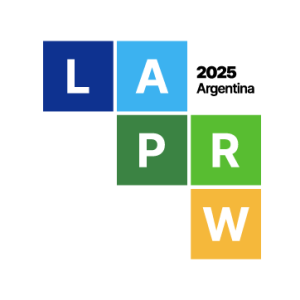COURSE 1 | LAPRW 2025 Pre-Workshop course
Analytical methods for pesticides/metabolites in human biomonitoring
Human biomonitoring (HBM) is measurement of chemicals or their metabolites in human matrices (urine, blood, hair, feces…) to assess the exposure of humans to chemicals. It provides information on internal exposure irrespective the source and route of exposure (dietary/oral, environmental dermal/inhalation). This course will provide a general introduction on HBM and then go into all aspects of the determination of pesticides/their metabolites (‘biomarkers of exposure’) in human matrices.
Programme
- General introduction HBM
- Choice of matrix: which matrix is most suited for HBM?
- Analytes: what are the target analytes to measure?
- Analytical approaches: quantitative target methods versus suspect/non-target screening
- General workflows
- Urine, including deconjugation
- Other matrices: blood, feces, hair
Example methods, including: pyrethroids, glyphosate/AMPA, multi-methods
Validation and quality control; HBM proficiency tests
Reporting & acceptability of data
What’s going on in Europe (national programs/EU projects HBM4EU, SPRINT, PARC)
COURSE 2 | LAPRW 2025 Pre-Workshop course
New contributions to environmental quality and sustainability
Tentative Programme
- To know the principles of advanced spectrometric separation and detection techniques.
- To present applications of these techniques in different environmental samples.
- The importance of analytical results in toxicological evaluation, the generation of public policies, and remediation.
- Bioremediation concepts, overview of current regulations in Latin America.
- Example of Biobeds installed at the “Estación INIA Las Brujas,” Uruguay.
- Performance of Biobeds with vermicompost and with bioaugmentation.
- Examples of water phytoremediation using different methods.
COURSE 3 | LAPRW 2025 Post-Workshop course
Pesticide residues and related contaminants in food control
Language: Spanish
Consejo Superior de Investigaciones Científicas (CSIC)
Universidad de Almería
Universidad de Almería
COURSE 4 | LAPRW 2025 Post-Workshop course
Analysis of pesticide residues in food: Quality management and application of metrological tools (Method validation and quality control)
Los objetivos curso son:
Provide theoretical and practical knowledge on quality management applied to the analysis of pesticide residues in food.
Familiarize participants with the requirements and standards of ISO/IEC 17025 for laboratory accreditation.
Train in the application of metrological tools, including method validation, uncertainty estimation, and ensuring the validity of results.
Suggested bibliography or reading materials:
ISO/IEC 17025, Documento SANTE/11312/2021v2
Universidades de Sao Pablo
Course 5 | LAPRW 2025 Post-Workshop course
Strategies in the analysis of compounds not amenable to multiresidue methods

